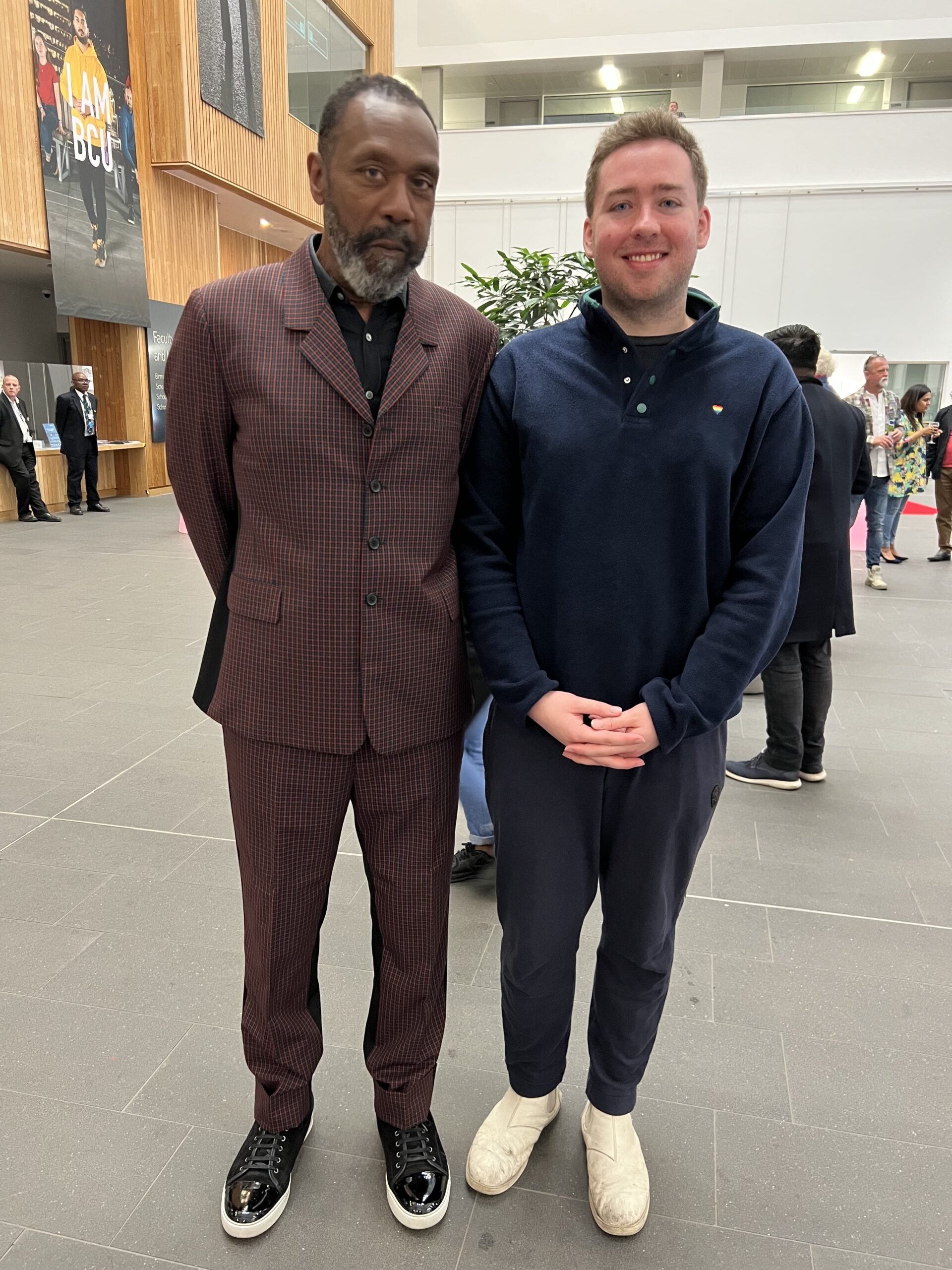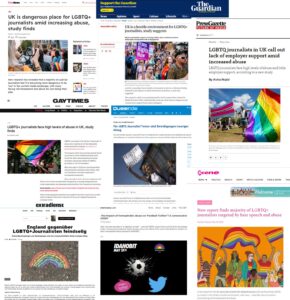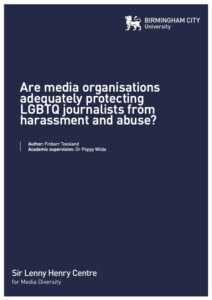
Finnbarr with Lenny Henry at the beginning of his Fellowship at the Centre for Media Diversity at Birmingham City University
For the last year, I’ve been a Fellow at the Sir Lenny Henry Centre for Media Diversity, researching the extent to which media organisations are protecting LGBTQ journalists from harassment and abuse. I carried out a survey of 40 LGBTQ+ journalists working in the UK, as well as one-to-one interviews with six media workers.
The report ‘Are media organisations adequately protecting LGBTQ journalists from harassment and abuse?’ has just been released and it finds high levels of abuse facing LGBTQ journalists, a lack of support for victims of harassment, specific abuse targeting sexual orientation and gender identity being commonplace and social media being the prime vector for abusive messaging.
The response has been amazing and slightly overwhelming! The report and the findings were covered by publications including The Guardian, Press Gazette, PinkNews and Gay Times.

The finding that 87% of survey respondents do not believe enough is being done to tackle the problem of harassment and abuse against LGBTQ journalists is of particular concern, as too is the result that 86% of respondents say they experience abuse and harassment.
Media organisations are failing to protect LGBTQ journalists from harassment and abuse. With a clear majority of respondents (78%) to the survey saying not enough is being done by media organisations to protect LGBTQ journalists, more support is urgently needed for at-risk journalists.
If nothing is done to combat the high levels of abuse and harassment against LGBTQ journalists, the media ecosystem will be less representative, LGBTQ stories will be silenced and LGBTQ journalists will be forced out of the industry
With 56% of respondents receiving homophobic harassment and 76% saying they are not given the support they need by their newsrooms, the UK is viewed by many LGBTQ journalists as a hostile environment.
If media organisations want to address these challenges, they must reassess abuse policies to make sure specific risks faced by LGBTQ employees are recognised. According to the study, media executives would benefit from undergoing awareness training to better understand the impacts of abuse against LGBTQ journalists.
It’s always difficult to calculate the impact of your work before it’s published and I had no idea that the report would strike such a chord. I’m glad the research has added to the conversation about journalist safety in the UK and provided a platform for LGBTQ journalists to share their experiences about the abuse they receive throughout the course of their work.
In the few weeks since the report was launched, I’ve had conversations with policymakers, media executives, editors and fellow journalists about how media organisations can act on the concerns raised by participants in the study.
While I’m extremely grateful for the impact this research has already had, it’s vitally important for leaders within media companies to address the abuse and harassment facing journalists, including those who are part of the LGBTQ community.

 Read the full report
Read the full report